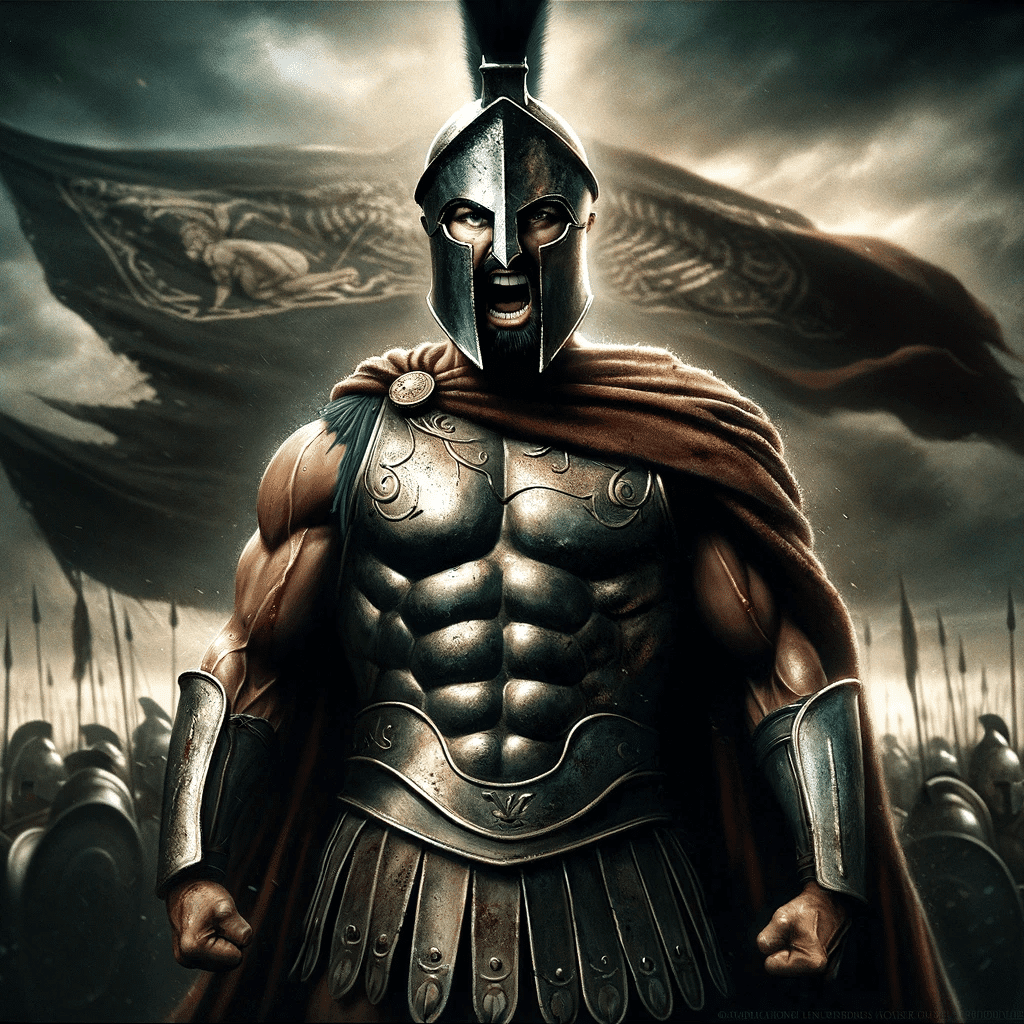
In the annals of military history, few stands are as emblematic of courage and tactical acumen as that of King Leonidas and his Spartan warriors at the Battle of Thermopylae.
In 480 BC, against the backdrop of a world in flux, a relatively diminutive Greek force faced the might of Xerxes' Persian empire in a narrow mountain pass with little more than their wits and iron resolve.
The Spartans, trained from birth to embrace the rigors of war, were led by a monarch whose very name, Leonidas, meant 'lion-like.'
As the reader embarks on an exploration of this pivotal moment, one cannot help but ponder the blend of strategy, psychology, and sheer determination that propelled these men to willingly embrace such an overwhelming challenge.
Leonidas and his men thus set the stage, standing as sheepdogs against a wolfish horde, their actions echoing across time and shaping the course of Western civilization.
Leonidas, the revered King of Sparta, etched his place in history as the indomitable leader of the 300 Spartans who valiantly stood against the Persian forces at the Battle of Thermopylae. His heroism at Thermopylae became a rallying point for Greek unity, as this strategic delay of the Persian army under Xerxes allowed other Greek city-states to fortify their resolve and resources against the encroaching threat.
Leonidas' sacrificial stand, a victory of spirit and a symbol of courageous resistance against insurmountable odds, celebrates despite its numeric defeat.
The Spartan king's actions left an indelible mark on the collective memory of Greek culture. Literature, art, and film have immortalized his legacy, captivating generations with the tale of the steadfast Spartan army. The ethos of Sparta, characterized by discipline, valor, and honor, was embodied by Leonidas as he and his select cohort of Spartans demonstrated an unwavering commitment to the freedom of Greece.
Leonidas' story continues to be synonymous with extraordinary leadership and the unyielding fight for independence, echoing through history as a testament to the enduring human spirit.
In 480 BC, the narrow pass of Thermopylae became the stage for a legendary confrontation between the Achaemenid Persian Empire and an alliance of Greek city-states led by the Spartan forces. The Battle of Thermopylae, one of the pivotal moments of the Greco-Persian Wars, witnessed a small contingent of Spartans, led by King Leonidas of Sparta, making a valiant stand against the might of the invading Persian army.
The Greeks, vastly outnumbered, utilized the constricted terrain of the narrow pass of Thermopylae to their advantage, holding back the Persians for three days. Their strategic position was crucial in stalling the advance of Persian king Xerxes' forces. Despite their eventual defeat, the Greeks' defiant stand provided a crucial delay, allowing other Greek states to marshal their defenses and gather strength for future encounters.
The Spartans' sacrifice, epitomized by King Leonidas' leadership, resonated through history as a symbol of courage and selfless dedication. The battle's significance transcended the military outcome, as it became a rallying point for Greek unity and resistance.
The clash at Thermopylae remains an enduring testament to the resolve of the Greeks in the face of overwhelming Persian odds.
How did the valiant defense of Thermopylae by King Leonidas and his Spartans shape the course of Western history and the concept of heroism? The epic battle at Thermopylae, where Leonidas and a small Greek force made a stand against the vastly larger Persian army led by Xerxes, became a defining moment. The Spartan king, Leonidas, demonstrated valor, delaying the Persian advance and setting a precedent for courage and self-sacrifice, uniting other Greek city-states.
Celebrated for its strategic brilliance and the Spartans' sheer determination, Leonidas' resistance stands out. The stand at Thermopylae has left an indelible mark on Western civilization, inspiring countless tales of heroism. Monuments commemorating this historic defiance, like the statue where Leonidas was erected, stand as testaments to this legacy.
Moreover, Leonidas' sacrifice is often quoted, with sayings such as 'Molon labe,' or 'Come and take them,' to which Leonidas famously replied when demanded to surrender their weapons. This event encapsulates the enduring impact of valor, as Leonidas' actions and the Battle of Thermopylae continue to echo through history, symbolizing the struggle for freedom and the valor required to defend it.
The goat path, or Anopaia Path, was a secret mountainous bypass whose strategic importance became clear when Efialtes' deception helped Persians exploit this terrain challenge, gaining a military maneuver advantage at Thermopylae through betrayal impact.
Leonidas was approximately 60 years old during the Battle of Thermopylae, embodying the heroic archetype with his seasoned leadership style and mastery of Spartan military tactics, which have solidified his legendary status in historical accounts.
Leonidas's last stand occurred at Thermopylae, where Spartan tactics and a strong shield wall exemplified the Greek unity and warrior culture. Despite superior Persian forces, their heroic ethos and military strategy temporarily held defensive positions.
Yes, the Pass of Thermopylae persists amidst modern geography, retaining its historical landmarks and strategic significance. It remains a tourist attraction, celebrated for its military legacy and subject to archaeological research and environmental impacts.
The valorous conduct of King Leonidas and his Spartan cohort at the Battle of Thermopylae has transcended time, encapsulating the epitome of courage and self-sacrifice.
Their unwavering stand against insurmountable odds not only fortified Greek resistance but also etched a permanent emblem of unity and defiance in the face of tyranny.
This historical paragon continues to inspire and instruct on the profound impact a steadfast few can have in the annals of history.